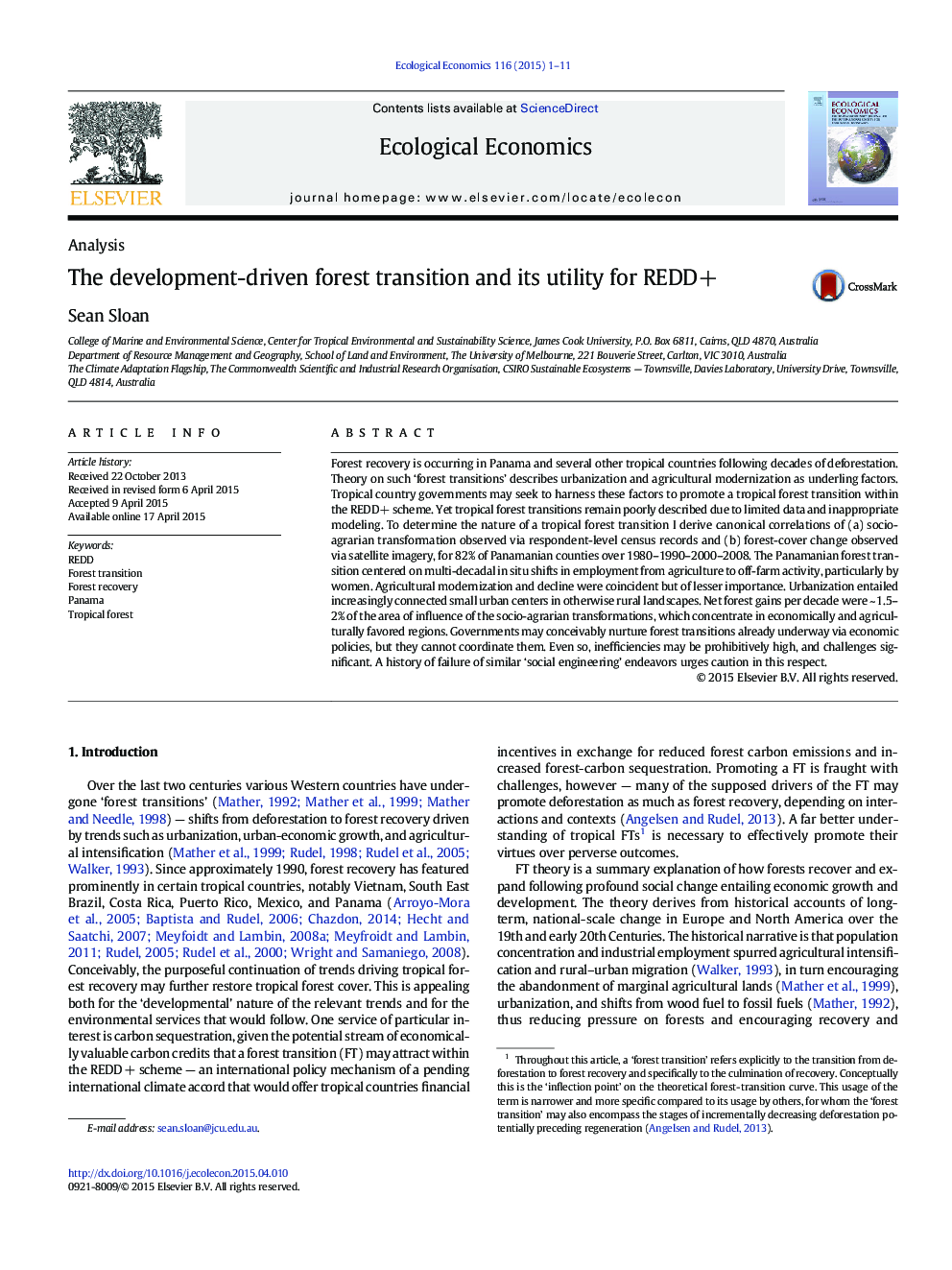| Article ID | Journal | Published Year | Pages | File Type |
|---|---|---|---|---|
| 5049424 | Ecological Economics | 2015 | 11 Pages |
Forest recovery is occurring in Panama and several other tropical countries following decades of deforestation. Theory on such 'forest transitions' describes urbanization and agricultural modernization as underling factors. Tropical country governments may seek to harness these factors to promote a tropical forest transition within the REDD+ scheme. Yet tropical forest transitions remain poorly described due to limited data and inappropriate modeling. To determine the nature of a tropical forest transition I derive canonical correlations of (a) socio-agrarian transformation observed via respondent-level census records and (b) forest-cover change observed via satellite imagery, for 82% of Panamanian counties over 1980-1990-2000-2008. The Panamanian forest transition centered on multi-decadal in situ shifts in employment from agriculture to off-farm activity, particularly by women. Agricultural modernization and decline were coincident but of lesser importance. Urbanization entailed increasingly connected small urban centers in otherwise rural landscapes. Net forest gains per decade were ~Â 1.5-2% of the area of influence of the socio-agrarian transformations, which concentrate in economically and agriculturally favored regions. Governments may conceivably nurture forest transitions already underway via economic policies, but they cannot coordinate them. Even so, inefficiencies may be prohibitively high, and challenges significant. A history of failure of similar 'social engineering' endeavors urges caution in this respect.
